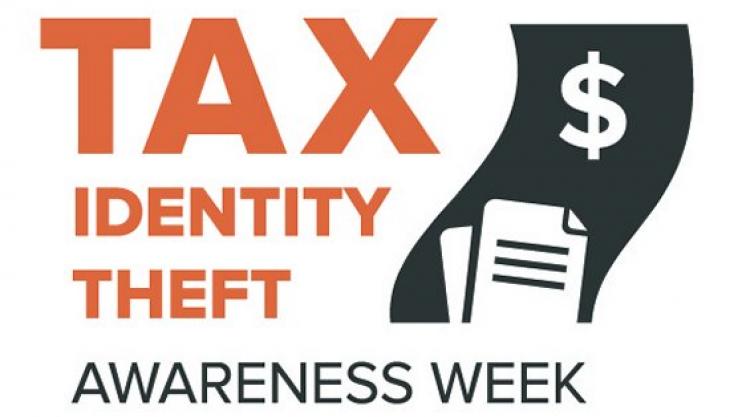It’s 1040 Time – Watch Out for Tax Identity Theft in North Carolina
Submitted by Rachel R on Fri, 02/05/2016 - 9:48am

Watch out for tax identity theft - learn more.
Image Source: FTC.gov
Everyone’s W2s should be in their mailbox or email by now and that means tax season has begun. That also means it’s now open season on consumers by tax identity thieves. The FTC just hosted an informative event at the end of January called “Tax Identity Theft Awareness Week.” If you missed it, here’s what you need to know to protect yourself.
The Two Big Tax Season Scams
This time of year there’s not just one, but two common types of tax fraud scams in circulation. First is the tax identity theft scam, and the other is the IRS imposter scam. Tax identity theft occurs when someone files a fake tax return under your Social Security Number to steal your tax refund. If the fraudulent return is received by the IRS before you send your real one, your refund may be gone.
The IRS imposter scam occurs when a scammer pretends to be someone from the IRS. They call you alleging you owe a tax debt and threatening arrest, jail and other terrifying consequences and demand instant payment on a prepaid card or another form of instant money. They may use caller ID spoofing software so the caller ID reads “IRS” or “Washington, DC” and then they take the money and run.
How to Avoid Falling Prey to Tax Scams
The first thing to do is to file your tax return as soon as you have all of your documents. Even if you can’t afford to pay any tax you may owe, you can still file the return. It takes a while for the return to be processed, which will allow you time to save up and pay the outstanding tax. If you can’t afford to pay, you can contact the IRS to work out a payment plan.
Even if you are not owed a refund when your taxes are properly done, that doesn’t mean a scammer can’t file an inaccurate return that can result in a refund. For instance, a scammer can claim more dependents or deductions than you really have, which can result in a check from the government. Later, when the errors are caught, you can be audited, resulting in a financial mess.
Once you file, if you get a notice that two returns were filed for your Social Security number, take immediate action by calling the IRS special identity theft unit at (800) 908-4490. They can help you get things sorted out, but if your refund was stolen, it will take time to correct the issue and get it back to you. If you owed a refund, file your tax return as soon as possible to avoid this mishap!
Understand How the IRS Works
Information is the biggest tool in your bag to protect yourself from scammers. Know this: The IRS doesn’t call people at home to demand money – ever. They go through a laborious process involving snail mail, so any call from the IRS is not legitimate and you should never provide them with any personal information.
The IRS communicates via mail with letters that are typically several pages long and refer to tax codes, statutes, etc. and they may be pretty confusing. However, phone calls don’t happen. If you don’t pay your taxes, you’ll surely get more letters, and then more and more. Eventually, they may try to garnish your wages or put a lien on your home. But still, there are no warning phone calls – only letters.
Knowing this is half the battle. Plus, anytime you get a call from anyone that says they are calling from a government agency – whether it’s local, state or federal – and demands instant money, it's a scam. The government doesn’t accept payments in that form and wouldn’t call after hours or threaten you with arrest for debt, parking tickets, etc. Don’t fall for it – just hang up the phone!
How Bankruptcy Helps with Tax Debts
If you’re deep in debt and owe back taxes, you may be able to extinguish these debts in bankruptcy, pay less than the balance due, or make interest-free installment payments depending on the chapter of bankruptcy you file. If you have debts that are charged off, these can result in a 1099-C, which increases income taxes. Debt discharged in bankruptcy will not result in any income tax hit.
Plus, getting free of credit cards, medical debts, and other obligations can free up money to deal with a current tax debt and put some breathing room into your budget. To find out more about debt relief in bankruptcy, contact the Law Offices of John T. Orcutt. Call +1-833-627-0115 now for a free North Carolina bankruptcy consultation in Raleigh, Durham, Fayetteville, Wilson, Greensboro or Wilmington – and be on the lookout for tax scams!
Resources:
Debts Hurt! Got debt? Need help? Get started below!
Serving All of North Carolina
- Bankruptcy Attorneys Raleigh NC (North)
- Bankruptcy Attorney Fayetteville NC
- Bankruptcy Attorney Durham NC
- Bankruptcy Attorneys Wilson NC
- Bankruptcy Attorneys Greensboro NC
- Bankruptcy Attorneys Southport NC
- Bankruptcy Attorneys Wilmington NC
Bankruptcy Attorneys Raleigh NC (North)
6616 Six Forks Rd #203 Raleigh, NC 27615 North Carolina
Tel: (919) 847-9750

Bankruptcy Attorney Fayetteville NC
2711 Breezewood Ave Fayetteville, NC 28303 North Carolina
Tel: (910) 323-2972

Bankruptcy Attorney Durham NC
1738 Hillandale Rd Suite D Durham, NC 27705 North Carolina
Tel: (919) 286-1695


Bankruptcy Attorneys Greensboro NC
2100 W Cornwallis Dr. STE O Greensboro, NC 27408 North Carolina
Tel: (336) 542-5993

Bankruptcy Attorneys Southport NC
116 N Howe St. Suite A Southport, NC 28461 North Carolina
Tel: (910) 218-8682

Bankruptcy Attorneys Wilmington NC
116 N. Howe Street, Suite A Southport, NC 28461 North Carolina
Tel: (910) 447-2987
